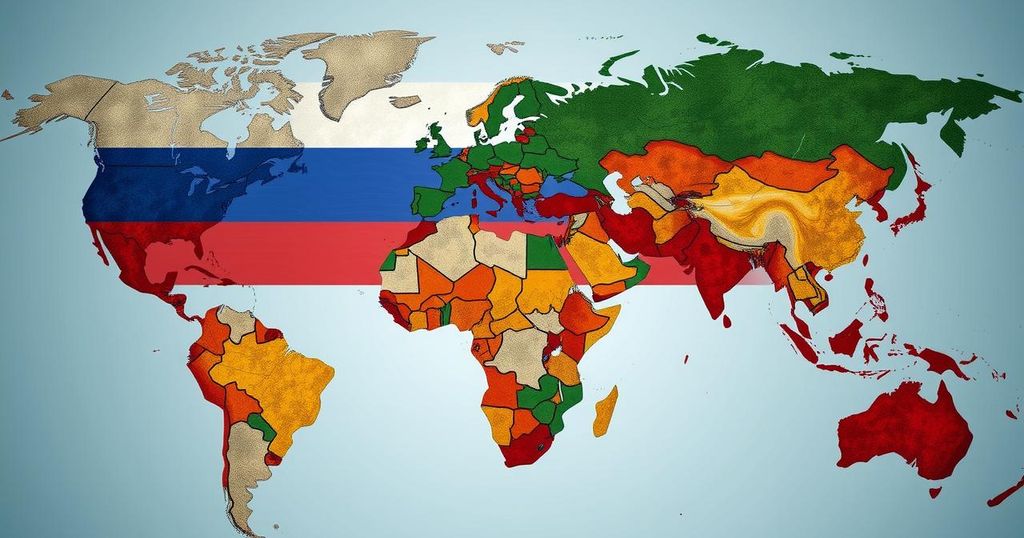Why Russia Is Not a Great Power in Africa

The article outlines the challenges Russia faces in consolidating its power in Africa, which is characterized by military failures, increasing casualties among Russian soldiers, and growing discontent from African leaders. It discusses how Russia’s reliance on mercenaries and propaganda is failing amid the war in Ukraine and local diversifications towards allies like Turkey, jeopardizing its influence on the continent.
In recent years, Russia has sought to establish itself as a significant power in Africa, leveraging historical ties and utilizing mercenary groups such as Wagner. However, this image is sharply contradicted by the realities on the ground, where Russian military support is proving ineffective and increasingly harmful to civilian populations. Reports indicate substantial loss of life among Russian soldiers engaged in conflicts, diminishing Moscow’s narrative as a liberator within the continent. Notably, the Kremlin’s strategy hinges on disinformation campaigns and military interventions, yet the dire conditions in places like Mali, Burkina Faso, and Niger reveal that Moscow is overstretched and struggling to maintain its influence. The ongoing war in Ukraine further limits Russia’s capacity to support its ventures in Africa effectively, leading some African leaders to reconsider their allegiances amid rising scrutiny of Russian military conduct, notably regarding human rights violations. Furthermore, as local governments begin to diversify their military partnerships towards nations like Turkey, the previously unchallenged Russian presence is increasingly viewed as an option rather than a necessity. In light of these developments, the narrative of Russia as a rising power in Africa appears to be both exaggerated and fragile, reliant on propaganda rather than substantial military or economic support. Russia’s actual influence is at risk of collapsing due to miscalculations in both the battlefield and diplomatic arenas, suggesting that the perception of Russian attractiveness may soon diminish significantly.
The article examines Russia’s attempts to project itself as a great power in Africa amidst challenges arising from military failures and overstretching of resources. It highlights how Moscow has employed paramilitary forces, notably Wagner, to exert influence through regime protection and extractive deals. However, casualties among Russian troops, failure to improve local security, and increasing dissatisfaction among African governments diminish Russia’s standing. The narrative framing Russia as a power for liberation contrasts sharply with its exploitative practices, illustrating the complexities facing its foreign policy in the continent. As other nations, specifically Turkey, begin to fill the power vacuum, it questions the sustainability of Russia’s influence in Africa.
In conclusion, Russia’s self-image as a great power in Africa is increasingly undermined by its military failures, the deterioration of local conditions, and rising skepticism from African governments. As Moscow finds itself overextended, especially with the ongoing crisis in Ukraine, its influence is waning. The prospect of diversifying partnerships with other nations offers African states renewed opportunities, highlighting that Russia’s approach may be more opportunistic and detrimental than initially perceived. Unless substantial diplomatic or practical corrections are made, Russia will likely continue to see its foothold in Africa erode, illuminating the gap between its propaganda and the on-ground realities.
Original Source: foreignpolicy.com








